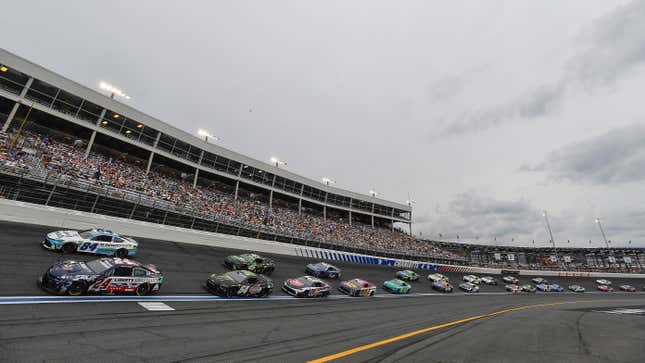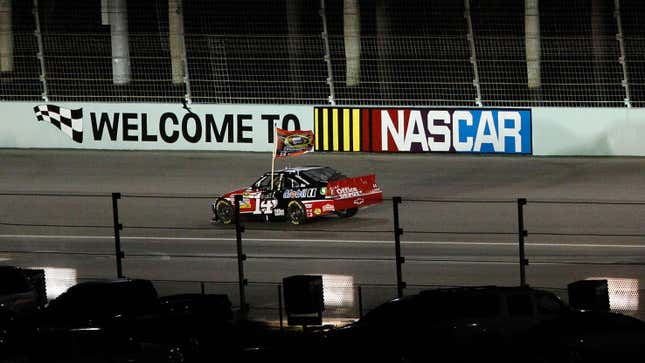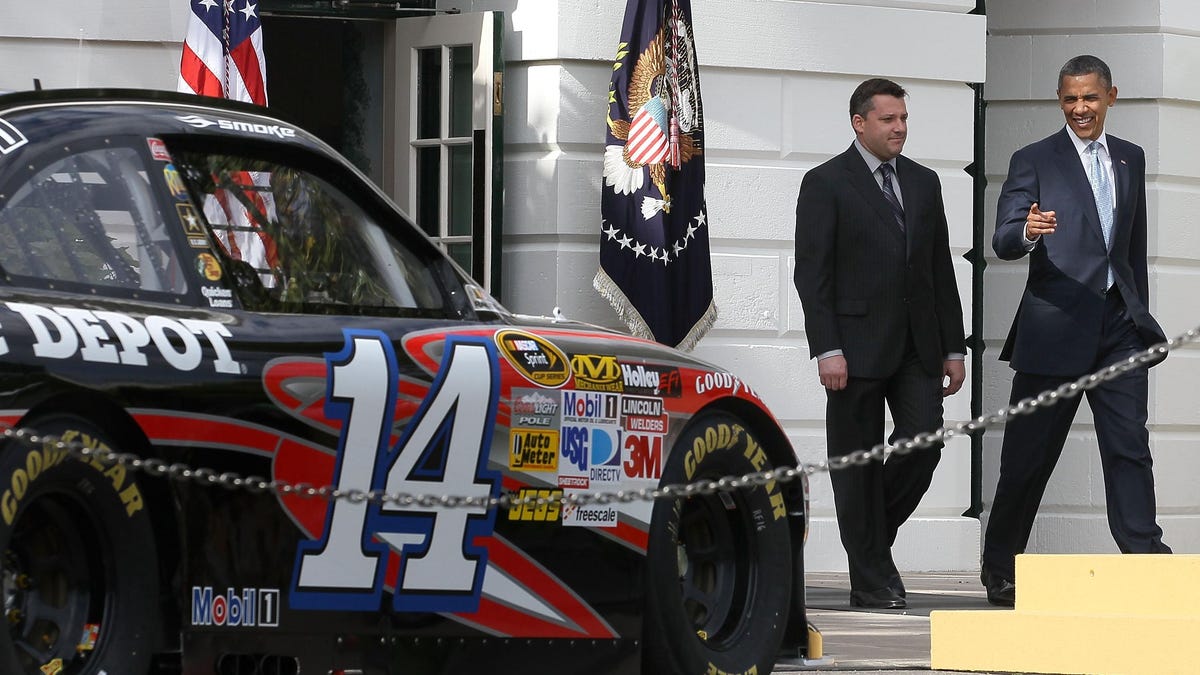Stewart-Haas Racing announced on Tuesday it will shut down at the end of the 2024 NASCAR season after 15 years in competition. For racing fans, the statement from team owners Tony Stewart and Gene Haas didn’t come as a surprise after months of speculation surrounding the outfit’s future. Despite winning two Cup Series championships over its first six seasons, Stewart-Haas has gone nearly two years without a win. While a rarity in stick-and-ball sports, it’s not uncommon for even successful teams to quickly decline and then shutter their doors.
Racing isn’t self-sustaining. It’s extremely unusual for any racing team to operate on prize money alone. Teams rely primarily on sponsorship to stay open, while a few teams have money from an outside business to lean on. Steve Newmark, President of RFK Racing, told NBC Sports in 2022 that sponsorship accounts for between 60 and 80 percent of a Cup Series team’s revenue. RFK’s parent company, Fenway Sports Group, also owns the Boston Red Sox. Newmark added that sponsorship only accounted for at most 12 percent of a team’s revenue in Major League Baseball.

In 2016, NASCAR introduced a charter system meant to emulate the franchise model used in North America’s alphabet soup of professional sports leagues: NFL, MLB, NBA, NHL and MLS. A team needs to control a charter to run a full-time entry in the Cup Series. There are only 36 charters, so prospective new teams need to buy or lease one for someone else to compete.
The value of a charter has increased exponentially. In 2018, Spire Motorsports bought a charter for $6 million. Spire bought another charter in 2023 for $40 million, according to the Athletic.
However, there was only one problem. There’s little upside for anyone wanting to solidify a permanent presence in stock car racing’s top competition. Team owners only benefit from the increased charter value if they’re selling or leasing the entry to someone else. The charters aren’t even permanent assets.
As NASCAR attempts to negotiate a seven-year renewal of the charter system, team owners have been very clear and vocal that the economic model is broken and only benefits the sanctioning body. The 16 charter-holding teams want a bigger share of the TV revenue than a meager 10 percent. The series is set to earn $1.1 billion annually after inking new deals with NBC, FOX, TNT and Amazon.
Television revenue is the fuel that keeps professional sports going, with broadcast money spilt evenly between the teams. Stick-and-ball leagues never contract in size and shut down a franchise. Teams in less lucrative markets are just relocated to different cities. Major League Baseball and the National Football League haven’t contracted since 1903 and 1953, respectively.

Stewart-Haas Racing might be struggling on track, but that’s not why the team is shutting down. In recent years, they lost multiple high-value sponsors that weren’t replaced, including Anheuser-Busch, Smithfield Foods, and Hunt Brothers Pizza. It doesn’t matter if the team has two championship trophies in its trophy cabinet. I’ll never forget Tony Stewart beat Carl Edwards at Homestead-Miami in a winner-take-all finale for the 2011 Cup Series title as an owner-driver. I also can’t forget the team’s four current drivers and hundreds of employees who will be out of work in December.

